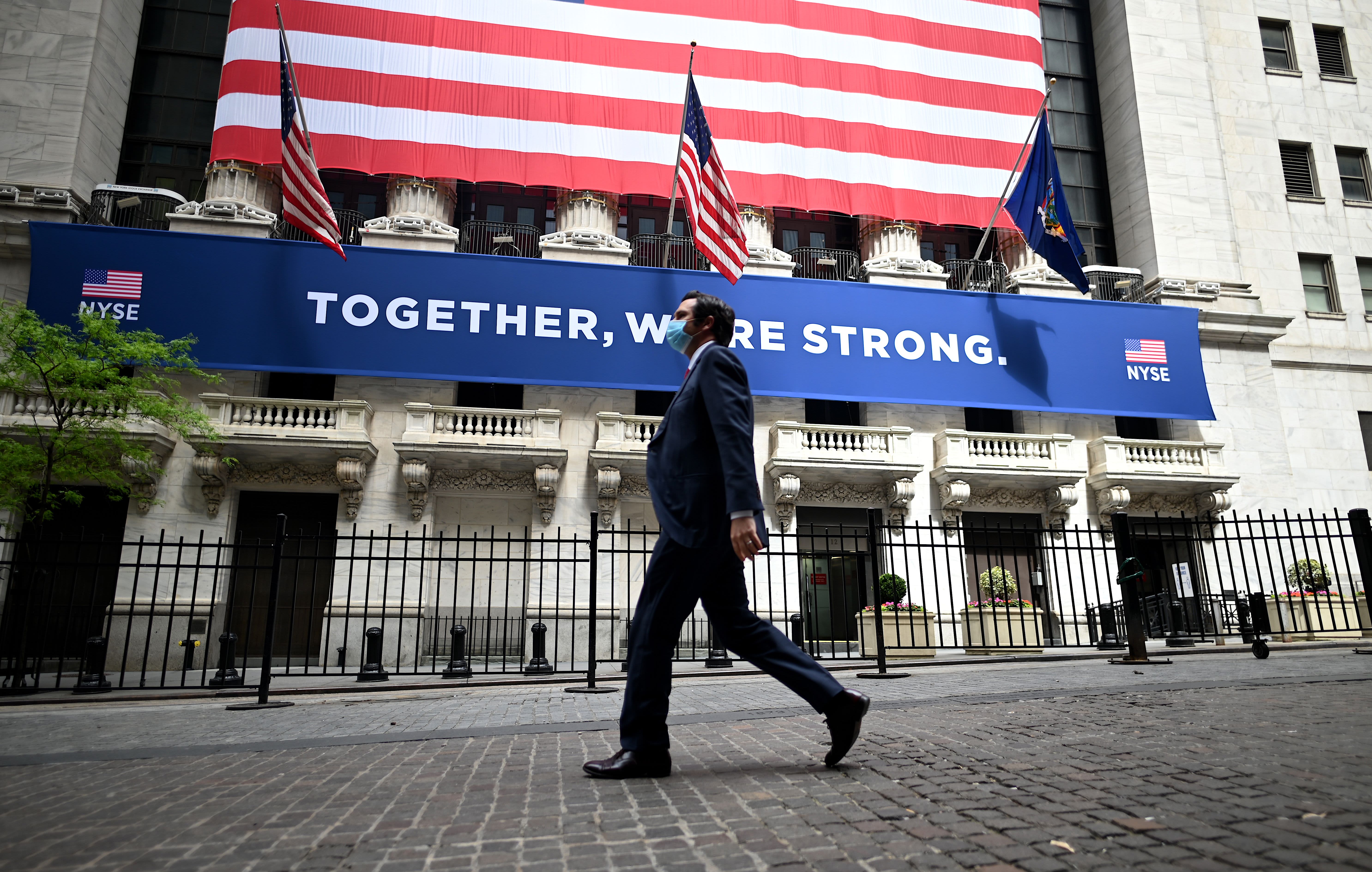How many times lately have you seen a news story about the incredible disconnect between the stock market, now up 37% from the March bottom, and the dire reality of unemployment heading to 25%, municipal fiscal woes, and widespread concerns about the next surge of Covid-19?
The negative tone of the news is reinforced by surveys, such as one published last week in the New York Times, confirming that Americans are still very wary of interacting with each other. not surprisingly, investors may be confused by those mixed signals.
After placing the economy into an induced coma to limit the coronavirus spread, the effort to snap it out of that suspended animation could be harder than expected. Once restrictions are lifted, the majority of survey respondents say they would still not attend a wedding or eat in a restaurant. An amazing 48% of them would not even send their children to school. With no kids in school, no parents at work. How does the economy handle that over the next year? About what exactly is the stock market so inspired?
Astounded and depressed by these survey results, I considered that the market, in its infinite wisdom, might recognize the impact two months of social isolation could have on how the shell-shocked public would respond to questions about its next steps outside the house. The concept of recency bias explains that we are deeply affected by our most recent experiences, and our pandemic experience has been nothing short of life-altering.
Why appear overly eager, or even reckless, after being told to stay inside, out of school, away from work, and apart from family and friends because of a life-threatening virus? It seems much wiser to be safe.
While pundits, who rail against moving into equities too quickly, believe that consumers will remain reluctant to venture out for months, the market may have discounted those jitters, understanding that we humans often undergo seismic shifts in sentiment over short periods of time. Stock price trends suggest that the negative tone may be excessive.
While nearly 60% of people say that they will not venture into a shopping-mall, their fear didn’t prevent them from returning to the 1,600 TJX stores that reopened in the past several weeks. On an earnings call yesterday, the company reported that sales at these locations were higher than a year ago.
In the past, we have experienced many cases where horrific events, corporate negligence or scandals have impacted our actions. The most obvious one is when Americans swore off air travel immediately after 9/11. It took almost three years for passenger headcount to exceed their prior peak, but it began to build a few months after the terrorist attacks.
Following the Facebook privacy scandal in 2018, millions of people swore they would close their accounts, highlighted by a 65% drop in trust of the social media platform among those surveyed .
While they may have switched to Instagram or WhatsApp without realizing those platforms were owned by Facebook, user numbers across Facebook’s platforms have continued to climb, failing to confirm a lasting effect from those earlier concerns. The stock price fell 40%, as details emerged on how Facebook engaged Cambridge Analytica to accumulate valuable data. However, as usage has expanded, particularly during the pandemic lockdown, when hundreds of millions globally have turned to social media as their primary form of communication and connection, Facebook stock is now making new highs.
There was also the wave of illnesses – norovirus, e coli, and salmonella – that afflicted patrons of Chipotle restaurants from 2015 to 2018. As customers shunned locations, the company’s earnings took a major hit, collapsing 95% from 2015 to 2016, then faltering in each of the next two years from persistent outbreaks. Earnings began to recover in 2019 when management was able to finally quash these bugs. Obviously tasty food wins over worry, and the stock, which bottomed at $255 in February 2018, has soared over 300% to an all-time high of $1,026 recently.
Of course, Covid-19 is infinitely worse than any of these examples, but the elimination of all personal interactions at school, work, stores, restaurants, travel, libraries, meetings, weddings, and social gatherings is equally more profound than eating a burrito (maybe not to some people).
History suggests that tragedy and personal trauma deeply influences our sentiment and investing for a while, but we may quickly alter our actions once we witness some proof that reassures us somehow. This stock market may have been trading on that understanding in late March, and it continues today.
Karen Firestone is chairman, CEO, and co-founder of Aureus Asset Management, an investment firm dedicated to providing contemporary asset management to families, individuals and institutions.
